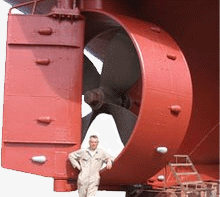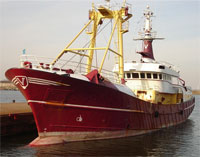 Fuel is naturally unstable. Its quality and chemistry are continuously degraded by transportation & storage from refinery to user, oxidation, heat & pressure of engines, pumps & injectors, and by water & microbial contamination. Even when fuel is still clear and bright, microscopic fuel components agglomerate forming larger clusters and organic compounds. Eventually, filters clog and sludge (algae, gum, tar, varnish, wax, etc.) accumulates in storage tanks. A product from ALGAE-X reverses the agglomeration process.
Fuel is naturally unstable. Its quality and chemistry are continuously degraded by transportation & storage from refinery to user, oxidation, heat & pressure of engines, pumps & injectors, and by water & microbial contamination. Even when fuel is still clear and bright, microscopic fuel components agglomerate forming larger clusters and organic compounds. Eventually, filters clog and sludge (algae, gum, tar, varnish, wax, etc.) accumulates in storage tanks. A product from ALGAE-X reverses the agglomeration process. But, while this product is certainly a must-have add on to any fuel system, a more comprehensive and equally maintainance free solution is offered by a Danish company called CJC Filters.
 Their website is particularly informative and offers a lot of great information on fuel conditioning, fuel sampling, know-how about oil, taking samples, including some downloadable guides, like the clean oil guide and their paper on oil degradation. Very eductional and highly recommended! (PDF requiered).
Their website is particularly informative and offers a lot of great information on fuel conditioning, fuel sampling, know-how about oil, taking samples, including some downloadable guides, like the clean oil guide and their paper on oil degradation. Very eductional and highly recommended! (PDF requiered).First of all, they use so-called off-line filtration. Instead of relying on in-line filters mounted on the engine, fuel is circulated between the bunker tanks and a daily service tank.
Why off-line filtration?
As the CJC site says: the short term benefits of off-line filtration:
- Reduced overall filtration costs (50-80%)
- Reduced equipment maintenance
- Minimal installation costs
- Minimal training required for operation
- No shutdown required for component changes
- Extended component life
- Extended oil life
- Extended in-line filter life
- Reduced downtime due to equipment failure
- Reduced environmental impact
Next, instead CJF does not use a purifier system with rotating discs like those made by Alfa Laval or Westfalia. The difference between the CJC filter andt he the centrifuge is the efficiency and the methode of working. The CJC filters works with a coalesing principle where the water is taken out by gravity.
The oil and water is pushed through the element where the waterdroplets merge, and when they reach the center of the element it will drop down into the secondary coalesher where it will form larger droplets and the watercan be drain off in the bottom of the unit either manually or automatically.
Features of CJC™ oil maintenance system:
- Compact, self contained, and totally separate from the main system, with its own pump and motor
- Can operate 24 hrs/day, even when the main system is shut down.
- The filter insert utilizes deep media and consistent density to provide fine filtration, with a normal lifetime of 12-18 months.
- The filter insert has 36 square metres of exposed surface area to allow for the slow, steady flow rate necessary for very fine filtration.
- The filter insert has a high dirt-holding capacity, on average between 5 and 7 kg (12 and 15 lbs), resulting in cost-effective operation.
- The main system does not need to be shut down in order to change filter insert.
Using CJC systems and the Algae-X device, I don't think we every have to worry about the quality of our fuel!



No comments:
Post a Comment